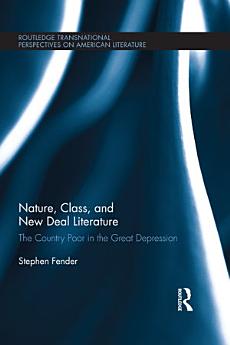Nature, Class, and New Deal Literature: The Country Poor in the Great Depression
About this ebook
Like the politicians and bureaucrats who accomplished the New Deal’s radical reforms in banking, social security and labor union law, the artists, novelists and other writers who supported or even worked for the New Deal were idealists, well to the left of center in their politics. Yet when it came to hard times on the American farm, something turned them into unwitting reactionaries. Though they brought these broken lives of the country poor to the notice and sympathy of the public, they also worked unconsciously to undermine their condition.
How and why? Fender shows how the answer lies in clues overlooked until now, hidden in their writing -- their journalism and novels, the "life histories" they ghost wrote for their poor white clients, the bureaucratic communications through which they administered these cultural programs, even in the documentary photographs and movies, with their insistent captions and voice-overs. This book is a study of literary examples from in and around the country Depression, and the myths on which they drew.
About the author
Stephen Fender has taught at Edinburgh, London and Sussex, as well as in America. His books include Plotting the Golden West: (Cambridge, 1982), and Sea Changes: British Emigration and American Literature (Cambridge, 1992.) He is now Honorary Professor of English at University College London, UK.





